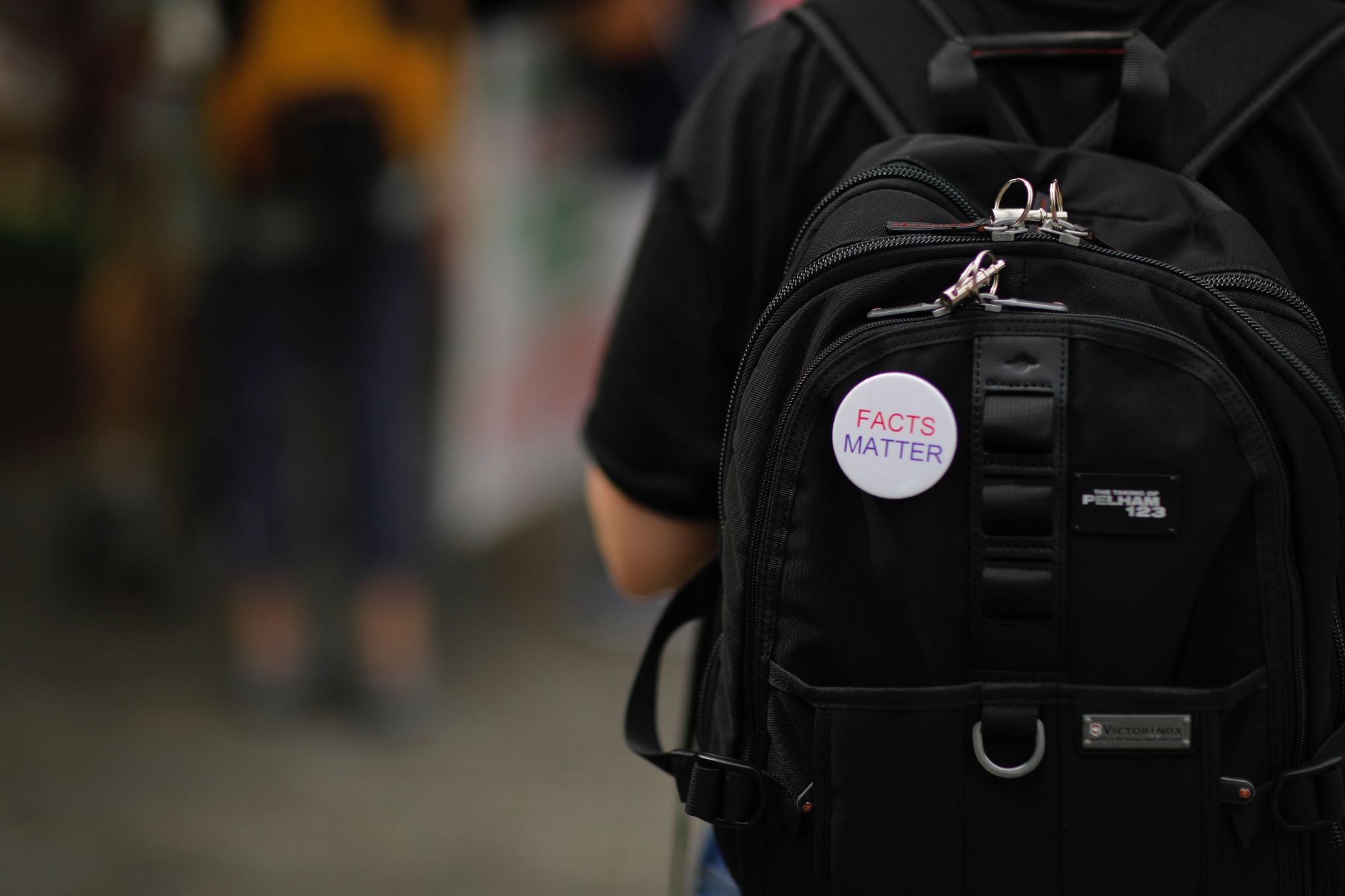On February 12, 2019, without an agenda item and in spite of the evidence presented by the public and Blue Mountain Heart to Heart the previous week, the Franklin County Commission decided to stop providing space for syringe exchanges and other needed services. Everett Maroon, Executive Director of Blue Mountain Heart to Heart, posted the following on social media to counter the misinformation being circulated. We are reprinting it here with his permission.
Dear friends in the community: I'm a dad of two young boys. We just got a puppy last month. My mother died of cancer on January 18 and I am still grieving. I'm trying to expand my program to start a new recovery program for people addicted to opioids. There's a lot going on in my life, and I am a person just trying to do a good job, like you are.
There is a lot of misinformation floating around about the Blue Mountain Heart to Heart syringe exchanges in Walla Walla and Pasco. People are outright lying about the program. We do not deal drugs -- that is illegal and that is harmful. We do not operate a safe injection site -- that is not legal in the State of Washington. We provide clean syringes to people and take back their used syringes.
More than 95 percent of the syringes we exchange with people come back to us -- the industry standard is 90 percent. We exchange ten for ten, because the syringes are packaged in tens. We do NOT exchange ten for one -- that is not the case. We have had an initial ten for people who have come in their FIRST time without any syringes or with 1 or a few. That is our only exception. You cannot come into the exchange with ten syringes and walk out with 100.
The evidence for syringe exchange as a public health program is huge. It spans 25 years and includes more than 1,500 peer-reviewed studies. Syringe exchange is an endorsed, funded activity within the Trump Administration. There are 28 syringe exchanges operating in Washington State today (and 39 counties, so most counties have at least one). Ours are relatively small in WW and Pasco, compared to the ones in our urban centers.
Syringe exchange has been shown -- and I provided these sources to the Franklin County Commissioners last week -- to lower HIV and hepatitis C transmission rates. That is our primary goal as a nonprofit in conducting this program. In Pasco alone, we identified 30 NEW cases of hep C among our exchangers. Now those people can get treated and cured and they won't have the medical complications of that virus, like needing a liver transplant or dealing with cirrhosis or liver cancer. That's why the American Foundation for AIDS Research found in 2007 that for every dollar spent on syringe exchange, $3-$7 are saved in future medical costs averted.
That savings also means that those are medical center, primary care, oncology, and specialist care that doesn't need to be delivered. Reducing stress on our rural health infrastructure is another good outcome of these programs.
On to addiction science. Doesn't syringe exchange just keep addicted people in their addiction? Well, again the evidence suggests otherwise. Behavioral science tells us that someone addicted to drugs needs to move from a "pre-cognitive" state where they are not thinking about their use, they're just using, to a "cognitive" state where they start to think about what drug use is doing to them and their lives. Syringe exchange helps them move from one to the next stage. As I told the Franklin County Commissioners, it is the first step for many people in taking control of their lives and getting themselves back on track. They are getting clean needles because they are worrying about what using dirty needles could do to them.
It is hard work, I won't kid you. There are many people I see on a downward slope and I try to meet them where they are and give them my best recommendations for improved health. But there are SO MANY people who do climb out of their holes, and our non-judgmental program helps them do it. People come in on a regular basis and turn in their syringes and tell us not to give them any more, and that they are going to detox and recovery later today. SO many women come in with painful stories about domestic violence, and we try to find programs that can help them even if they aren't currently in sobriety. Just last week a young woman told us she just found out she was pregnant, and we referred her into a program to get clean -- she was so motivated to have a healthy baby born without opioid withdrawal syndrome. The cost savings to Franklin County from her getting clean ALONE will more than pay for the program for YEARS, because the severe learning disabilities and medical complications for a child born addicted are very long-lasting.
About the cost for our syringe exchange program. As I told the Commissioners, BMHTH gets $20,000 a year from the Washington State Department of Health, with an additional in-kind donation from the state of about $25,000. The rest of the money comes from individual donations and private foundations. There is ZERO local tax funding. You are paying pennies once a year for this program. And you are saving a LOT of money from prevented HIV and hepatitis C and the morbidity of drug injection that clean syringes provide.
I know there was a young man claiming that people in our program share needles. I cannot comment on anyone in our program as it is confidential and anonymous. However, I can say that that man has never been a client in our program. I and my staff tell our clients all the time not to throw syringes onto the street, we tell them not to share, we tell them they may not sell what we give them, and we tell them that if they do any of that we will kick them out of the program. Yes, I have blocked people from the syringe exchange in Walla Walla before. I'm serious. Even people who use drugs can be competent.
Finally, I want to say that I know the damage a person can cause when they are dependent on drugs. I have addiction issues in my own family. I know that many of us have been hurt, had people steal from us, put us or our loved ones in danger, tried very hard to get them sober only to watch them relapse again. Drug use is painful to see, and I wish it were not so widespread. We have a long road ahead of us all. I am not asking anyone to “love” drug users. I am only asking people to be level-headed and to let us do the work. Some people do an excellent job in our community helping puppies, helping small children, helping our veterans, helping immigrant laborers, and I deeply appreciate their work. Our work is in helping people who use drugs, whether they are actively trying to stop using or not. By helping them, we are helping you.
Thank you. It is an honor to live in this community and I truly care about the future for all of us.
Photo by The Climate Reality Project
Everett Everett is the Executive Director of Blue Mountain Heart to Heart.
Blue Mountain Heart to Heart has had a Syringe Exchange Program in place since 1998. This program began originally to address a gap in harm reduction services available in southeastern Washington State. With close proximity to the state penitentiary and increasing rates of intravenous drug use in our region, their program has seen more than a sixfold usage increase in the last ten years, serving more than 550 unduplicated exchangers from Walla Walla and 340 from the Tri-Cities metropolitan area. They support a diverse client base, including people who are Hispanic, Native American, and Black, an increasing number of young adults under age 29, and both sexes. In response to an increase in opioid-related overdoses and overdose deaths they began in 2015 a naloxone distribution program to reverse overdoses in progress. Their data shows they have reversed 332 overdoses since the inception of the program.


